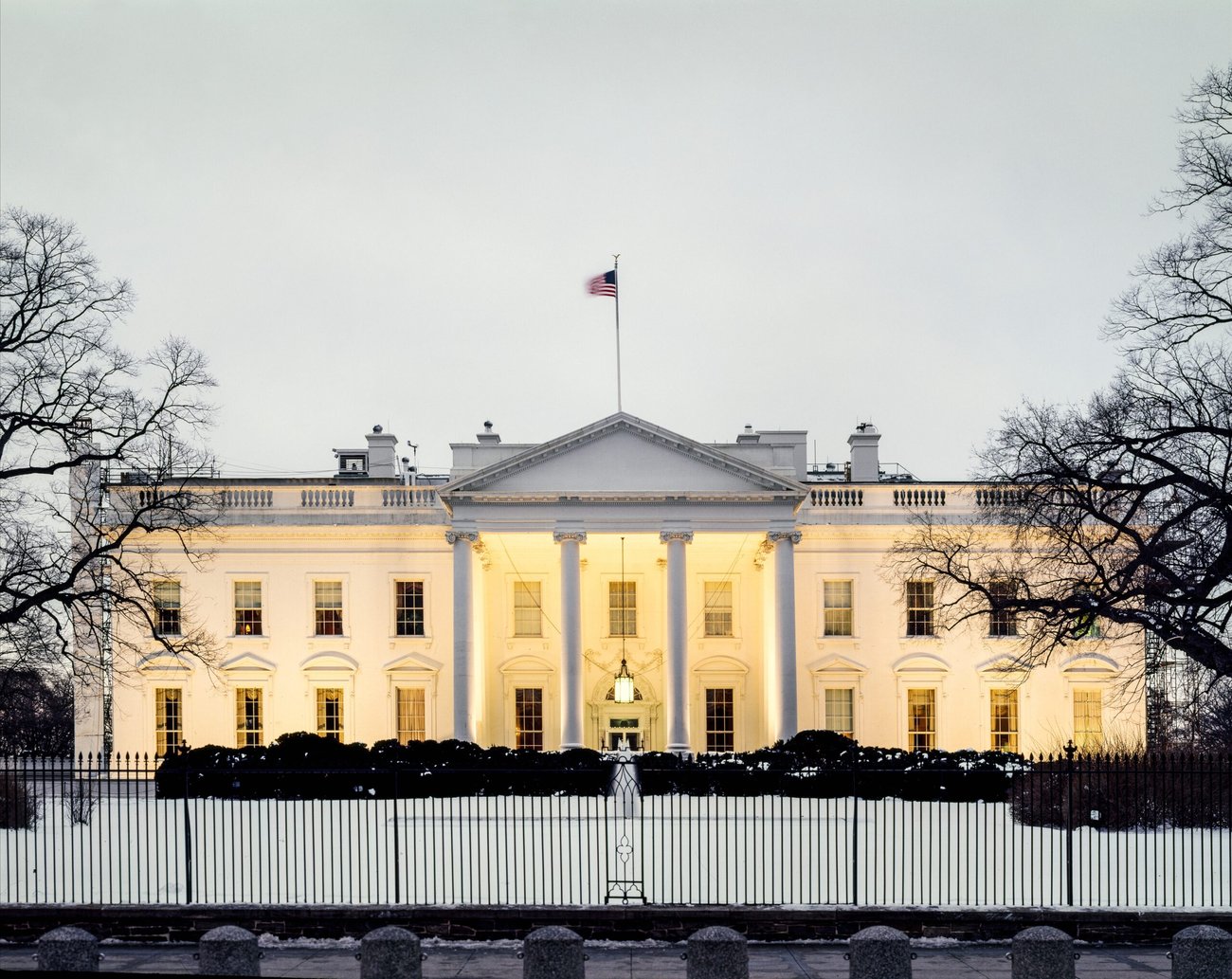| National security insights for space professionals. Delivered Tuesdays. | | View in Browser | | | | |
Welcome to this week's edition of SpaceNews Military, your concise source for the latest developments at the intersection of space and national security. In this issue, we cover:
- Washington readying for Donald Trump's second term - Space policy experts urge action on key issues - Export control reforms marching forward
If this newsletter was forwarded to you, sign up for free here | | | | | Second Act: Defense and space sectors prepare for Trump's return
Washington is bracing for potential shifts in space and national security policy as a second Donald Trump administration takes shape. The prospect of increased spending could benefit government contractors, but given the incoming president's unpredictable nature and penchant for disruptive policies, experts emphasize the need to assess the team surrounding Trump to understand the direction of his administration.
Potential for Increased Defense Spending: A Republican-controlled Congress and White House suggest a likely increase in defense spending. The focus might shift towards space and missile defense, with the potential for increased funding for the U.S. Space Force. Concerns about Alliance Relationships: Experts express apprehension about Trump's impact on NATO and U.S. commitments to European and Asian allies. Trump's history of questioning U.S. troop deployments and advocating for allies to shoulder greater burdens raises doubts about his commitment to collective defense. The Future of Ukraine: Trump's pledge to end the war in Ukraine on "day one" raises concerns about the conflict's resolution and implications for global security. According to The Washington Post, President-elect Trump spoke with Russian President Vladimir Putin and advised him not to escalate the conflict. Tensions with China: Concerns about Trump's approach to China, particularly his focus on tariffs and unilateral action, are prominent. Experts highlight the potential for trade wars and increased burden-sharing demands on allies in the Asia-Pacific region. Elon Musk's potential influence: Elon Musk's significant investment in Trump's campaign may give him influence over space policy. Some speculate that Musk could spearhead efforts to reinvent government and defense contracting, potentially leading to more commercially-driven space initiatives. However, there are concerns about whether this would be fair and transparent or primarily serve Musk's interests. Potential for Reduced International Cooperation: The second Trump administration's stance on international cooperation in space is still unclear, but the overall sentiment is that a more isolationist and America-first approach would de-emphasize international cooperation at a time when nations are calling for norms and agreements regarding military activities in space to prevent conflicts. Space National Guard: Trump has expressed intentions to establish a Space National Guard, which would provide part-time personnel to the Space Force. This move is favored by some state leaders but faces opposition from the current administration due to concerns about costs and bureaucratic complexity. U.S. Space Command Relocation: Trump is expected to push for relocating U.S. Space Command from Colorado to Alabama, a decision he advocated for during his first term. This move has been contentious and may reignite debates about political motivations behind such relocations. Proponents argue it aligns with strategic interests, while opponents warn it could disrupt operational effectiveness.
|  | |
As the incoming administration prepares to set its priorities, here's a refresher of space policy recommendations outlined in reports published in recent weeks by three influential organizations — the Aerospace Corporation, MITRE, and the National Security Space Association.
Top concerns identified in these reports:
Securing the U.S. space industrial base and supply chain: Analysts emphasize the importance of collaborating with Congress and relevant agencies to address concerns related to foreign ownership, control, and investment in the U.S. space sector.
Maintaining leadership in the global space economy: The U.S. faces increasing competition in the space sector, and these reports highlight the need for proactive measures to maintain its leadership position. This involves fostering innovation, promoting responsible space operations and strengthening partnerships with allies.
Addressing the increasing complexity of the space environment: The growing number of actors and competitors in space necessitates a comprehensive approach to space security and resilience, including measures to protect space assets, promote sustainability, and foster a secure environment for commercial space operations.
Catalyzing the commercial space sector: These reports emphasize the importance of a thriving commercial space industry for advancing economic, scientific, technological, and national security interests. They argue policymakers need to consider the role of the government in fostering a healthy space market and addressing issues such as supply chain resilience, workforce development, and environmental stewardship.
The challenges of proliferated defense space systems: The transition to more numerous, smaller satellites presents challenges for the defense industrial base and supply chains to produce these systems at scale and cost-effectively while maintaining quality and security.
| | | | | | | Commerce, State Departments press on with space export reforms
Amid the transition to a new administration, the Departments of Commerce and State are expected to press forward with a series of export reforms aimed at boosting American space industry competitiveness.
The primary goal is to streamline licensing and regulatory processes for U.S. space tech exports as demand for U.S. satellite and launch technologies expands globally. Officials emphasize that clear, modernized policies are crucial to secure U.S. leadership in the competitive global space economy, especially as allies and rivals alike advance in space technology. -
At the heart of this reform is a recalibration of the U.S. Munitions List. As high-tech capabilities rapidly evolve, the update aims to ensure regulations stay relevant and promote trade while protecting national security. -
Industry advocates for reforms point out that outdated controls can limit U.S. companies' global reach and inadvertently benefit foreign competitors. -
While some regulatory revisions are already in motion, officials said they are still looking for input from the space industry during the public comments period that ends Nov. 22.
| | | | |
The U.S. Space Force last week held an Operation Olympic Defender "common operational picture working group" with representatives from the Australian Space Operations Centre, Canadian Space Operations Centre and United Kingdom National Space Operations Centre.
Operation Olympic Defender is an initiative focused on enhancing collective space security and resilience.
Under the working group, the U.S. and these key allies are developing advanced coordination tactics to address potential threats to critical space infrastructure such as jamming, spoofing, or interference with satellites.
| | | | |
The Space Systems Command selected 12 companies for the $2.5 billion Hemisphere Indefinite Delivery/Indefinite Quantity (IDIQ) contract. These vendors will compete for task orders over the next 10 years for advisory and technical services in support of the Space Domain Awareness and Combat Power, and Battle Management Command, Control, and Communications (BMC3) program offices.
The companies selected are Axient, Bryce Space & Technology, BTAS, KBR Wyle Services, LinQuest, MTSI, NTSI, OBX-MCR , Quantech Services, SAIC, Sigmatech, Solutions Through Innovative Technologies
| | |  | | Advanced Space won a Small Business Innovation Research Phase 1 contract from the U.S. Space Force to investigate artificial intelligence/machine learning (AI/ML) algorithms that can guide satellites in the absence of human intervention. Advanced Space said it plans to leverage its recent spacecraft operations AI/ML work it has been doing for other government customers.
"The goal is to find ways to strategically reduce — not eliminate — the workload of humans in the loop, via the appropriate integration of AI/ML technologies to targeted applications. In this way, we gain a significant understanding regarding the depth at which AI/ML can be integrated into standard spaceflight operations," said Jeffrey Parker, chief technology officer of Advanced Space.
| | | | | | | What's New With SpaceNews? | | Don't forget to sign up for our next webinar! |  | | Join us November 13 at 11:00 AM EST for a dynamic webinar that brings together key players from across the space industry to explore the growing need for a more collaborative approach to designing the next generation of satellite systems. | | | | | | |

No comments:
Post a Comment